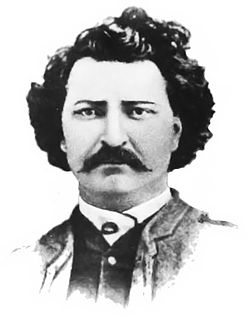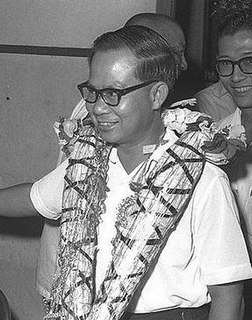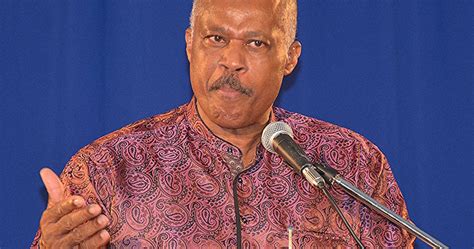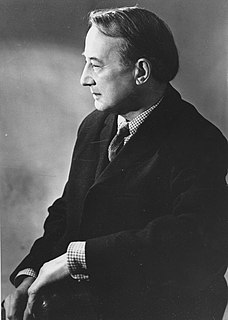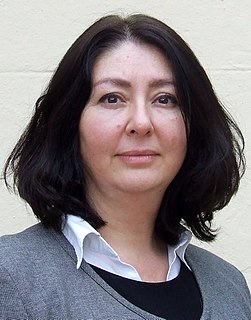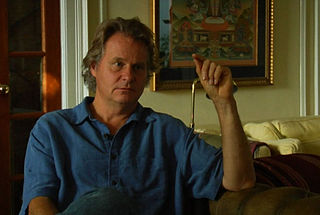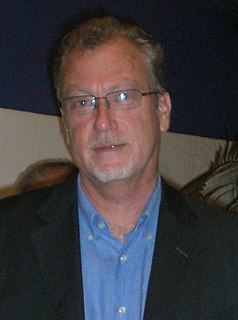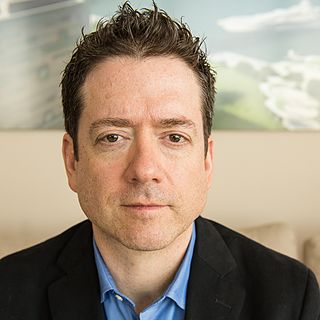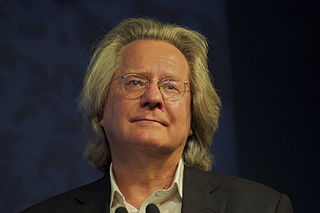Top 1200 Societies Quotes & Sayings - Page 19
Explore popular Societies quotes.
Last updated on December 11, 2024.
Humans impart meaning and purpose to almost all aspects of life. This sense of meaning and purpose gives us a road map for how to live a good life. This guidance emerges spontaneously from the interactions of human beings living in societies and thinking together about how best to get along. It doesn't require a god or sacred text.
I suppose the half-breeds in Manitoba, in 1870, did not fight for two hundred forty acres of land, but it is to be understood there were two societies who treated together. One was small, but in its smallness it had its rights. The other was great, but in its greatness it had no greater rights than the rights of the small, because the right is the same for everyone.
There are two generic and invariable features that characterize utopias. One is the content: the authors of utopias paint what they consider to be ideal societies; translating this into the language of mathematics, we might say that utopias bear a + sign. The other feature, organically growing out of the content, is to be found in the form: a utopia is always static; it is always descriptive and has no, of almost no, plot dynamics.
The provision of health care facilities must be accepted as a social responsibility. It is not that an individual who has the misfortune to be inflicted with some particular disease is solely responsible for searching the facilities to cure his illness. This is a social responsibility which is accepted by governments all over the world. This is part and parcel of the organization of individuals into societies. It is a measure of the degree of civilization.
In liberal society we claim that freedom of speech is sacred and therefore has an absolute character. But we know (or should know) that "free speech" inhabits a structured space: not only is "hate speech" legally forbidden in liberal societies, but there are also laws protecting the circulation of copyrighted material, and the reproduction of trademarks and patents without explicit permission.
Perhaps, indeed, there are no truly universal ethics: or to put it more precisely, the ways in which ethical principles are interpreted will inevitably differ across cultures and eras. Yet, these differences arise chiefly at the margins. All known societies embrace the virtues of truthfulness, integrity, loyalty, fairness; none explicitly endorse falsehood, dishonesty, disloyalty, gross inequity. (Five Minds for the Future, p136)
MAN is a social animal, gregarious by nature, and finds his greatest sense of security and satisfaction in the company of others who share his interests and attitudes. Of all the many groups into which humans have collected themselves, of all the many tribes, clans, organizations, and societies throughout history, none has been so powerful, so far-reaching, or more universal than the church.
You can read Windrush as a morality tale, but it is about the future of black people in the Caribbean. Where next will they want us to labour? Where is the next place they will take us? Why do we not focus on building our own economies and societies? We need to put all hands on deck to get our economies to function at a higher level.
William Wilberforce...w as a great man who impacted the Western world as few others have done. Blessed with brains, charm, influence and initiative, much wealth ... he put evangelism on Britain's map as a power for social change, first by overthrowing the slave trade almost single-handed and then by generating a stream of societies for doing good and reducing evil in public life... To forget such men is foolish.
The truths of the Judaic-Christian tradition, are infinitely precious, not only, as I believe, because they are true, but also because they provide the moral impulse which alone can lead to that peace, in the true meaning of the word, for which we all long. .?.?. There is little hope for democracy if the hearts of men and women in democratic societies cannot be touched by a call to something greater than themselves.
In most societies birth has been an experience in whichwomen draw together to help each other and reinforce bonds in the community. Now that eradication of pain with effective anesthesia is often the only issue in any discussion of birththe sacramental and social elements which used to be central to women's experience of birthseem, for an increasing proportion of women, to be completely irrelevant.
Our lives are now in a telephone, all our data, all our finances, all our personal information, and so it's proper that we have some constraints on that. But it's not going to be 100 percent. If it is 100 percent, then we're not going to be able to protect ourselves and our societies from some people who are trying to hurt us.
And that is what is behind the abrupt rise in climate change denial among hardcore conservatives: they have come to understand that as soon as they admit that climate change is real, they will lose the central ideological battle of our time—whether we need to plan and manage our societies to reflect our goals and values, or whether that task can be left to the magic of the market.
There is no life without guilt anyway, at least in the Western world. I think in other civilizations it might be different but if the world is getting Westernized all over, guilt will enter through the technology and democracy and their actions. It will come side by side so there won't be anymore innocent societies in the future I think which in fact is not such a bad thing.
Zakath's face grew thoughtful. "You know something, Garion?" he said. "Man thinks he owns the world, but we share it with all sorts of creatures who are indifferent to our overlordship. They have their own societies, and I supposed even their own cultures. They don't even pay attention to us, do you?" "Only when we inconvenience them...It teaches us humility," Garion agreed.
Politics I take to be the activity of attending to the general arrangements of a set of people whom chance or choice have brought together. In this sense, families, clubs, and learned societies have their 'politics'. But the communities in which this manner of activities is pre-eminent are the hereditary co-operative groups, many of them of ancient lineage, all of them aware of a past, a present and a future, which we call states.
Liberty is lost through complacency and a subservient mindset. When we accept or even welcome automobile checkpoints, random searches, mandatory identification cards, and paramilitary police in our streets, we have lost a vital part of our American heritage. America was born of protest, revolution, and mistrust of government. Subservient societies neither maintain nor deserve freedom for long.
The fact is that the average man's love of liberty is nine-tenths imaginary, exactly like his love of sense, justice and truth... Liberty is not a thing for the great masses of men. It is the exclusive possession of a small and disreputable minority, like knowledge, courage and honor. It takes a special sort of man to understand and enjoy liberty - and he is usually an outlaw in democratic societies.
They are men and women who tend to believe that the human being is perfectible and social progress predictable, and that the instrument for effecting the two is reason; that truths are transitory and empirically determined; that equality is desirable and attainable through the action of state power; that social and individual differences, if they are not rational, are objectionable, and should be scientifically eliminated; that all people and societies strive to organize themselves upon a rationalist and scientific paradigm.
The situation of women living in Islam-stricken
societies and under Islamic laws is the outrage
of the 21st century. Burqa-clad and veiled women
and girls, beheadings, stoning to death,
floggings, child sexual abuse in the name of
marriage and sexual apartheid are only the most
brutal and visible aspects of women's
rightlessness and third class citizen status in the Middle East
If one writing contributed more than any other to the framework in which this work Sowell's Knowledge and Decisions developed, it would be an essay entitled 'The Use of Knowledge in Society,' published in the American Economic Review of September 1945, and written by F. A. Hayek . . In this plain and apparently simple essay was a deeply penetrating insight into the way societies function and malfunction, and clues as to why they are so often and so profoundly misunderstood.
Cultural survival is not about preservation, sequestering indigenous peoples in enclaves like some sort of zoological specimens. Change itself does note destroy a culture. All societies are constantly evolving. Indeed a culture survives when it has enough confidence in its past and enough say in its future to maintain its spirit and essence through all the changes it will inevitably undergo.
No matter how free divorce, how frequently marriages break up, in most societies there
is the assumption of permanent mating, of the idea that the marriage should last as
long as both live. . . . No known society has ever invented a form of marriage strong
enough to stick that did not contain the 'till death us do part' assumption.
Because the bill in reserving a certain parcel of land in the United States for the use of said Baptist Church comprises a principle and a precedent for the appropriation of funds of the United States for the use and support of religious societies, contrary to the article of the Constitution which declares that "Congress shall make no law respecting a religious establishment."
The United Nations and the Organization of American States have named 2011 as the International Year for People of African Descent. This is an opportunity for all of us around the globe to celebrate the diversity of our societies and to honor the contributions that our fellow citizens of African descent make every day to the economic, social and political fabrics of our communities.
We need to use economic instruments such as carbon taxes, cap and trade, tax and dividend and whatever else to help incentivize behavior that will move us to a post-carbon, post-animal agriculture world, and make our societies more resilient to the shocks that are already baked into the system. But that doesn't make climate change an "economic issue."
Decades from now, people will look back and wonder how societies could have acquiesced in a sex slave trade in the twenty-first century that is... bigger than the transatlantic slave trade was in the nineteenth. They will be perplexed that we shrugged as a lack of investment in maternal health caused half a million women to perish in childbirth each year.
Our infrastructure of bridges, roads and ports has been given a D-level rating by many civil engineer societies. The government should shift some money from the Defense budget and hire companies to fix our infrastructure. As for non-construction workers, we need to do job retraining in those growing areas where more skilled workers will be needed.
One concern I had while I was working actively in the intelligence community - being someone who had broad access, who was exposed to more reports than average individuals, who had a better understanding of the bigger picture - was that the post - World War II, post - Cold War directions of societies were either broadly authoritarian or [broadly] liberal or libertarian.
We live in an extraordinary time, in which one still has the ability to mold opinion. Also, it's up for grabs. Perceptions are up for grabs in a way that it hasn't been before, which makes it really interesting. Societies that have always defined other aspects of human experience, or histories, try to hold on to it and try to find ways to continue to be the ones who do the interpreting.
Actually, there is a sense in which polygynous marriage has not been the historical norm - even where polygyny is permitted, multiple wives are generally reserved for a relatively few men who can afford them or qualify via formal rank. For eons and eons, most marriages have been monogamous, even though most societies haven't been
Families and societies are small and large versions of one another. Both are made up of people who have to work together, whose destinies are tied up with one another. Each features the components of a relationship: leaders perform roles relative to the led, the young to the old, and male to female; and each is involved with the process of decision-making, use of authority, and the seeking of common goals.
There are five things that societies do: They reproduce; they produce food; they organize themselves in terms of law; they organize themselves in terms of belief; and they make art. Four of them are about conformity, and in these, everything would go more smoothly if people just would shut up and do what they're told. But in art it doesn't work that way.
The Islamic teachings have left great traditions for equitable and gentle dealings and behavior, and inspire people with nobility and tolerance. These are human teachings of the highest order and at the same time practicable. These teachings brought into existence a society in which hard-heartedness and collective oppression and injustice were the least as compared with all other societies preceding it....Islam is replete with gentleness, courtesy, and fraternity.
People can leave seasteads, or people can choose them, and people can create new seasteads if they want. This fluidity will engage an evolutionary market process that'll allow a diversity of societies to emerge that will in principle be superior, simply because people chose them. Governments on land don't allow this fluid dynamic of choice.
American intelligence and military agencies have a huge footprint in terms of how the world works, but they're largely invisible. I'm interested in exploring those 'geographies' of secrecy from many different angles: political, legal, economic, spatial, etc., because I am fundamentally just interested in how the world works and how societies work.
The recent past is full of diverse examples of writers - Mahfouz in Egypt, Pamuk in Turkey, and more interestingly, Pasternak in the Soviet Union - who have conducted their arguments with their societies and its political arrangements through their art in subtle, oblique ways. They didn't always have the license to make bold pronouncements about freedom, democracy, Islam, and liberalism, but they exerted another kind of moral authority through their work.
Perhaps worse still is what liberal societies might do to themselves in the face of this new and different threat [of terrorism]. They begin, by small but dangerous increments, to cease to be as liberal as they once were. They begin to restrict their own hard-won rights and freedoms as a protection against the crminial minority who attempt (and as we thus see, by forcing liberty to commit suidcide, succed in doing) to terrorise society.
Global warming people ignore nature; they ignore water vapor; they ignore sunspot cycles and sun activity. It's typical liberal guilt and politics wanting to blame western societies and lifestyles for causing all these problems because it leads to government and United Nations solutions, and that's where liberals like power vested. And of course when people come along and don't agree, they gotta be shut up.
We in the richest societies have too many calories even as we starve for beautiful, fresh food; we have overly large houses but lack spaces that truly embody our individuality and connectedness; media surround us everywhere while we starve for authentic communication. We are offered entertainment every second of the day but lack the chance to play. In the ubiquitous world of money, we hunger for all that is intimate, personal and unique.
That's the argument of flexibility and it goes something like this: The Constitution is over 200 years old and societies change. It has to change with society, like a living organism, or it will become brittle and break. But you would have to be an idiot to believe that. The Constitution is not a living organism; it is a legal document. It says something and doesn't say other things.
Our reliance in this country is on the inquiring, individual human mind. Our strength is founded there; our resilience, our ability to face an ever-changing future and to master it. We are not frozen into the backward-facing impotence of those societies, fixed in the rigidness of an official dogma, to which the future is the mirror of the past. We are free to make the future for ourselves.
All religions try to benefit people, with the same basic message of the need for love and compassion, for justice and honesty, for contentment. So merely changing formal religious affiliations will often not help much. On the other hand, in pluralistic, democratic societies, there is the freedom to adopt the religion of your choice. This is good. This lets curious people like you run around on the loose!
The Paris Agreement is, in fact, a historic one because it marks the culmination of a phase of very long, drawn-out negotiations involving more than 190 countries. Why is it historic? Because it shows the way for our societies to change from the ground up, to create an economy that only depends on fossil fuels to a very slight degree.
We've shown again and again, in every UN report on the status of women, that wherever women control their own bodies and have access to education, societies prosper. Men's fortunes go up, children's fortunes go up. This is not news - it's been proven repeatedly. Anywhere those things are threatened, we have to defend them.
The future of life on earth depends on our ability to take action. Many individuals are doing what they can, but real success can only come if there's a change in our societies and our economics and in our politics. I've been lucky in my lifetime to see some of the greatest spectacles that the natural world has to offer. Surely we have a responsibility to leave for future generations a planet that is healthy, inhabitable by all species
We survived for hundreds of years under the old banking structure. You'd have clearing banks, then merchant banks doing the racy stuff, and then building societies where you'd join a waiting list for a mortgage. But then banks started buying stockbrokers, doing mortgages, and you ended up with these big banking groups doing everything.
There was great political uncertainty in South Asia at the time of the Buddha. The older small tribal societies were cracking up and gave way to bigger states. There was much more trade and travel going on than before. To people in the cities the experience of living in a small place where you knew everyone and governed your affairs by consensual democracy had been lost.
I think Jorge Borges said that when Argentineans die they turn into angels and go and live in Uruguay. But for the rest of South America, you have to say that it's getting there - becoming civilized - and will get there. It's had a real grit war in history. The choice between those societies until recently was the choice between tyranny and chaos. Everyone understood that. You've got to have a strong man, or it's going to be a mess.
In America there are people advocating for trans rights and people like Vice President Pence, who is vehemently opposed. In Pakistan, too, you have all kinds of folks - from flamboyant gay fashion designers and female Air Force pilots to the Taliban. A cross-dressed man used to be the top TV talk show host. It was actually quite radical. So the diversity of these societies is often lost on people.
Being a fan of science fiction, I collect a lot of science fiction art work and so if you go to my house there's like a library and you just geek out on science fiction material. A lot of the colony worlds specifically are built as a melting pot of different societies, because the world is at a point where there are only two zones that are left inhabitable.
The arts do live continuously, and they live literally by faith; their names and their shapes and their uses and their basic meanings survive unchanged in all that matters through times of interruption, diminishment, neglect; they outlive governments and creeds and the societies, even the very civilization that produced them. They cannot be destroyed altogether because they represent the substance of faith and the only reality. They are what we find again when the ruins are cleared away.
Man is a historical being : The realisations of the powers of human individuals living at any one time takes the cooperation of many generations (or even societies) over a long period of time. By contrast with humankind, every individual animal can and does do what for the most part it might do, or what any other of its kind might or can do that lives at the same time.
The mere fact of leaving ultimate social control in the hands of the people has not guaranteed that men will be able to conduct their lives as free men. Those societies where men know they are free are often democracies, but sometimes they have strong chiefs and kings.they have, however, one common characteristic: they are all alike in making certain freedoms common to all citizens, and inalienable.
Society may no longer define marriage in the only way marriage has ever been defined in the annals of recorded history. Many societies allowed polygamy, many allowed child marriages, some allowed marriage within families; but none, in thousands of years, defined marriage as the union of people of the same sex.
In many shamanic societies, if you came to a medicine person complaining of being disheartened, dispirited, or depressed, they would ask one of four questions: 'When did you stop dancing? When did you stop singing? When did you stop being enchanted by stories? When did you stop being comforted by the sweet territory of silence?'

